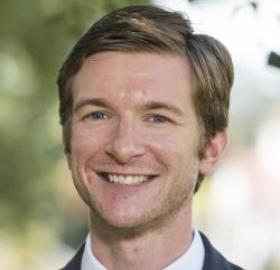Christopher Walmsley
Associate Professor
Dr. Walmsley received his undergraduate degree in psychology at the University of New Hampshire. While at UNH, Dr. Walmsley took a course on radical behaviorism in contemporary culture and society that served as a catalyst towards the pursuit of a career in behavior analysis. Dr. Walmsley then went to Western Michigan University, where he obtained both his M.A. and Ph.D in the behavior analysis program under Dr. Wayne Fuqua.
Dr. Walmsley is interested in behavioral gerontology - the intersection of the science of behavior and the unique challenges an individual faces as they age. Dr. Walmsley’s current research interests include the refinement of behavioral technologies to assess for and promote adaptive functioning and wellbeing among both community-dwelling and institutionalized older adults with neurocognitive loss. In particular, Dr. Walmsley’s research has included how being engaged in a structured activity impacts happiness levels, modifying a memory intervention to promote generalization, and a decision-making model on how behavior-analytic practitioners can effectively and humbly navigate pseudoscientific practices in memory care settings when expanding their scope of competency.
Dr. Walmsley’s current teaching interests are broadly in Behavior Analysis, and specifically in the areas of Gerontology, professional and ethical conduct in Applied Behavior Analysis (ABA) and the unique challenges practitioners face while providing services in a variety of clinical contexts, and adopting single-subject experimental design methods to answer research questions that arise in ABA service delivery.
Dr. Walmsley is interested in behavioral gerontology - the intersection of the science of behavior and the unique challenges an individual faces as they age. Dr. Walmsley’s current research interests include the refinement of behavioral technologies to assess for and promote adaptive functioning and wellbeing among both community-dwelling and institutionalized older adults with neurocognitive loss. In particular, Dr. Walmsley’s research has included how being engaged in a structured activity impacts happiness levels, modifying a memory intervention to promote generalization, and a decision-making model on how behavior-analytic practitioners can effectively and humbly navigate pseudoscientific practices in memory care settings when expanding their scope of competency.
The Behavior Analysis and Aging Lab meets in BSS 406. For more information, follow this link.
Current graduate students:
- Kayla Hart. Master’s project entitled Examining the Effects of a Teaching Theory of Mind Curriculum for Children with Autism Spectrum Disorder.
- Sarah Romero Pavon. Master’s project entitled Evaluating the Effects of Memory Aids on Conversational Behaviors in Older Adults with Cognitive Decline and Their Caregivers.
- Isabelle Rodriguez. Master’s thesis entitled Acceptance and Commitment Training for Reducing Aggressive Behavior in a Classroom.
- Jeanavy Perez. Master’s project entitled Using Behavior Skills Training to Increase Independent Living Skills in Foster Youth
- Leti Armenta Villa. Master’s project entitled The Effect of Self-Management on Type 2 Diabetes.
- Joelle Lok. Master’s project TBD.
Former graduate students:
- Dean Shearer. Master’s project entitled The Potential for Competency-based Teaching Methodologies to Reduce Self-reported Verbal Behavior Associated with Turnover in Behavior Technicians.
- Juliana Bertolucci. Master’s thesis entitled Dining Layout Effects on Attendance, Communication, and Happiness in Older Adults.
- Maggie Groves-Bradley. Master’s project entitled Teaching Conversation Skills Using BST and Video Modeling Via Telehealth.
- Marissa Howell. Master’s project entitled Surveying Levels of Staff Burnout Among Applied Behavior Analysis Practitioners.
- Melissa Cisneros - Master’s project entitled: Assessing Convergent Validity of the QABF and TBH FA Intake Form with Results of a Functional Analysis
- Jessie Kelly - Master's project entitled: Mand Prompting and Fading: Teaching Yes-No Manding
- Jackie Morris - Master’s project entitled A Survey On the Status of Acceptance and Commitment Training in Rural Northern California.
- Giancarlo Anro - Master’s project entitled An Overview of Electronic Preference Assessments and Recommendation for Their Use in Telehealth.


